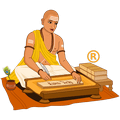























Sunrise05:47
Sunset18:55
Moonrise05:18, Apr 12
Moonset16:47
Shaka Samvat-9527 Khara
Vikram Samvat-9392 Vikriti
Gujarati Samvat-9393 Shubhakrit
Amanta MonthBhadrapada
Purnimanta MonthAshwina
WeekdayRaviwara
PakshaKrishna Paksha
TithiTrayodashi upto 21:13
NakshatraMagha upto 02:30, Apr 12
YogaSiddha upto 14:54
KaranaGaraja upto 10:47
KaranaVanija upto 21:13
Pravishte/Gate5
Rahu Kalam17:16 to 18:55
Gulikai Kalam15:38 to 17:16
Yamaganda12:21 to 13:59
Abhijit11:54 to 12:47
Dur Muhurtam17:09 to 18:02
Amrit Kalam00:20, Apr 12 to 01:47, Apr 12
Varjyam15:41 to 17:08
Notes: All timings are represented in 24-hour notation in local time of Columbus, United States with DST adjustment (if applicable).
Hours which are past midnight are suffixed with next day date. In Panchang day starts and ends with sunrise.


 Meena
Meena U Bhadrapada 10:17
U Bhadrapada 10:17

 Mesha
Mesha Ashwini 12:50
Ashwini 12:50

 Mesha 19:28
Mesha 19:28 Bharani 13:24
Bharani 13:24

 Vrishabha
Vrishabha Krittika 13:29
Krittika 13:29

 Mithuna
Mithuna Mrigashira 12:13
Mrigashira 12:13

 Mithuna 27:38+
Mithuna 27:38+ Ardra 10:54
Ardra 10:54

 Karka 28:52+
Karka 28:52+ Pushya 07:08
Pushya 07:08

 Simha 29:36+
Simha 29:36+ P Phalguni 24:10+
P Phalguni 24:10+

 Kanya
Kanya U Phalguni 22:00
U Phalguni 22:00

 Kanya 07:27
Kanya 07:27 Chitra 18:51
Chitra 18:51

 Tula
Tula Swati 18:08
Swati 18:08

 Vrishchika
Vrishchika Anuradha 18:56
Anuradha 18:56

 Vrishchika 20:30
Vrishchika 20:30 Jyeshtha 20:30
Jyeshtha 20:30

 Dhanu 08:13
Dhanu 08:13 U Ashadha 28:32+
U Ashadha 28:32+

 Kumbha
Kumbha Dhanishtha 10:36
Dhanishtha 10:36

 Kumbha 08:53
Kumbha 08:53 P Bhadrapada 15:23
P Bhadrapada 15:23

 Meena
Meena U Bhadrapada 17:02
U Bhadrapada 17:02

 Mesha
Mesha Ashwini 18:50
Ashwini 18:50

 Mesha 25:04+
Mesha 25:04+ Bharani 19:04
Bharani 19:04In Hindu Calendar, the day starts with local sunrise and ends with next day local sunrise. As sunrise time is different for all cities, Hindu Calendar made for one city is not valid for any other city. Hence it is important to use location based Hindu Calendar, like this website. Further, each Hindu day consists of five elements, which are called angas. These five elements are -
In Hindu Calendar, all five elements together are called Panchang. (In Sanskrit: Panchang = Pancha (five) + Ang (part)). Hence Hindu Calendar which shows all five elements for each day is called Panchang. In South India Panchang is known as Panchangam.
When Hindu Calendar includes Muslims, Sikh, Christian, Buddhist and Jain festivals, including national holidays, it is called as Indian Calendar.